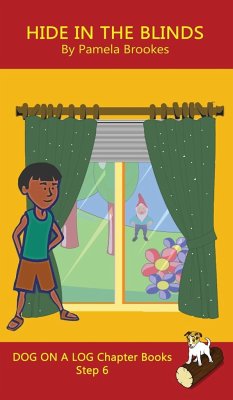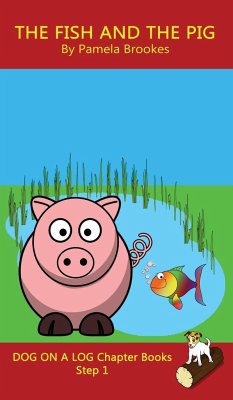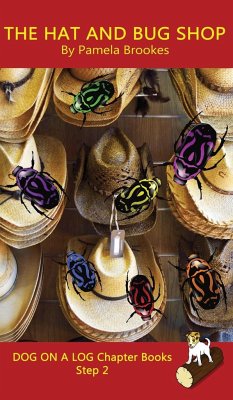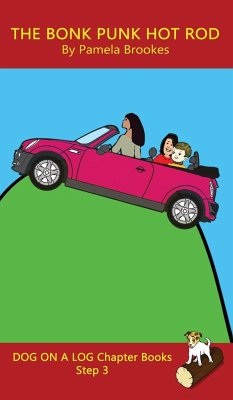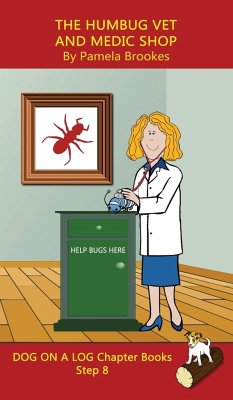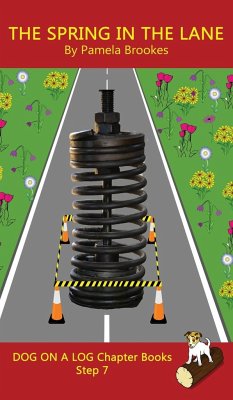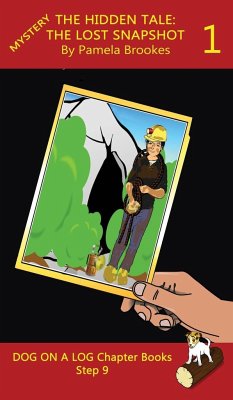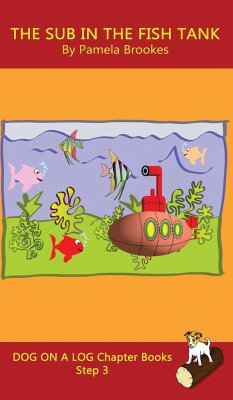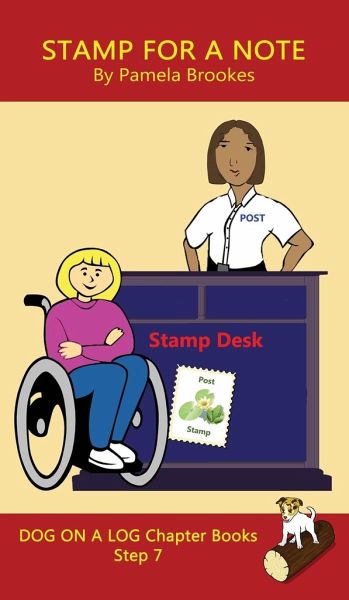
Stamp For A Note Chapter Book
Sound-Out Phonics Books Help Developing Readers, including Students with Dyslexia, Learn to Read (Step 7 in a Systematic Series of Decodable Books)

PAYBACK Punkte
7 °P sammeln!
This book has about 2,640 words. The DOG ON A LOG Book series helps kids, including kids with dyslexia, learn to read. They are sound out books that start with just a few phonics rules. Each following Step of books adds a few more phonics rules and sight words. This gradual progression helps kids learn to read without feeling so overwhelmed. Start anywhere in the series based on your child's reading skills. The word list below will help you decide where in the series your child should start. Printable game boards, flashcards, handwriting sheets, and more are available to for additional practic...
This book has about 2,640 words. The DOG ON A LOG Book series helps kids, including kids with dyslexia, learn to read. They are sound out books that start with just a few phonics rules. Each following Step of books adds a few more phonics rules and sight words. This gradual progression helps kids learn to read without feeling so overwhelmed. Start anywhere in the series based on your child's reading skills. The word list below will help you decide where in the series your child should start. Printable game boards, flashcards, handwriting sheets, and more are available to for additional practice. Information on the printables is provided in each book. The (purple) Let's GO! books have fewer words for new or less confident readers. The (red) chapter books are longer for more reading practice. Kids enjoy these stories that get more complex and longer as more phonics are added throughout the series. Books can be purchased individually or as collection volumes. This is an individual Step 7 Chapter Book. Additional information on using this series is available in the digital book HOW TO USE DECODABLE BOOKS TO TEACH READING. DOG ON A LOG Books follow an Orton Gillingham/systematic-phonics progression. DOG ON A LOG "What Step Should We Start With?" Word List Have your child read the following words. If they can't read every word in a Step, that is probably the step they should start with. For some kids, you may want to start at an earlier Step so they can build confidence in their reading ability. Step 1 fin, mash, sock, sub, cat, that, Dan's Step 2 less, bats, tell, mall, chips, whiff, falls Step 3 bangs, dank, honk, pings, chunk, sink, gong, rungs Step 4 silk, fluff, smash, krill, drop, slim, whisk Step 5 hunch, crate, rake, tote, inch, mote, lime Step 6 child, molts, fold, hind, jolt, post, colds Step 7 strive, scrape, splint, twists, crunch, prints, blend Step 8 finish, denim, within, bathtub, sunset, medic, habit Step 9 hundred, goldfinch, tree, wheat, inhale, play, Joe Step 10 be, remake, spry, repeat, silo, sometime, pinwheel Step 11 far, north, spire, turn, inhabit, calculate, Wyoming Many early reader books or leveled books are written so they cannot be sounded out. Kids often struggle and grow frustrated when they can't sound out the words. However, kids who have been taught the phonics and sight words in DOG ON A LOG Books can be proud when they are able to sound out and read almost every word. Paper books are optimized for learners with dyslexia. They have cream colored paper, black and white images, and large Verdana font. Research has shown Verdana is one of the most dyslexia-friendly fonts. More DOG ON A LOG Books: DOG ON A LOG Pup Books ---Before the Squiggle Code (Pre-Reading Skills) ---The Squiggle Code (Learning Letters and Words) ---Kids' Squiggles (First Stories) DOG ON A LOG Parent and Teacher Guides ---Teaching a Struggling Reader: One Mom's Experience with Dyslexia ---How to Use Decodable Books to Teach Reading Relevant portions of the DOG ON A LOG Phonics Progression (Scope and Sequence) and the Quick Assessment Tool ("What Step Should We Start With?" Word List) are inside each book. WATCH FOR MORE STEPS AND BOOKS COMING SOON






